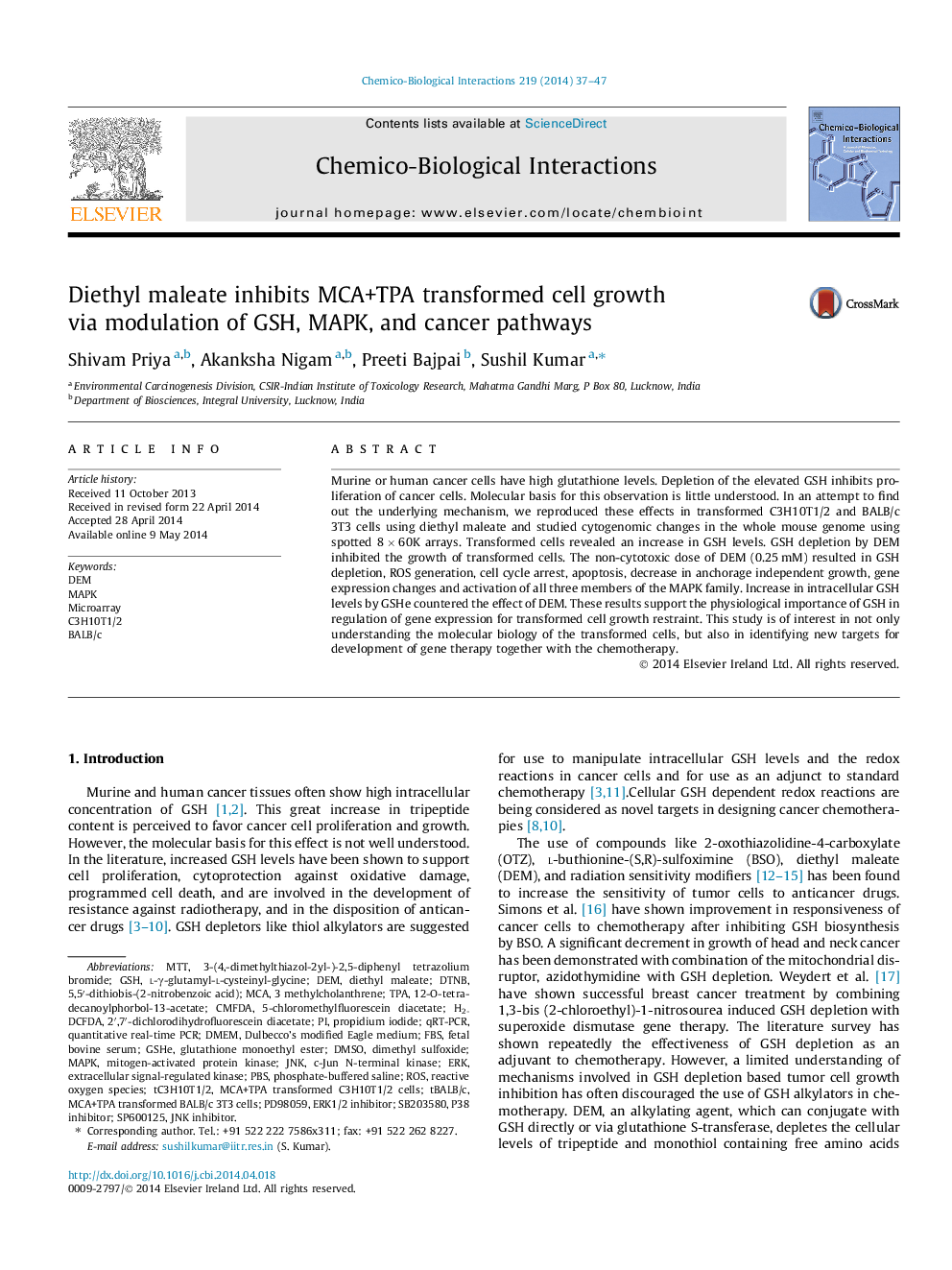| Article ID | Journal | Published Year | Pages | File Type |
|---|---|---|---|---|
| 2580431 | Chemico-Biological Interactions | 2014 | 11 Pages |
•Chemically transformed cells acquire cancer cell features and increase cellular GSH contents.•GSH depletion by DEM elicits oxidative stress, DNA damage, and inhibits transformed cell growth.•Changes in GSH content alter MAPK activation, transformed cell growth, and cell-cycle arrest.•Gene expressions and pathways of carcinogenesis respond to GSH depletion in transformed cells.•The change in cytogenomic profile provides insight into molecular biology of transformed cells.
Murine or human cancer cells have high glutathione levels. Depletion of the elevated GSH inhibits proliferation of cancer cells. Molecular basis for this observation is little understood. In an attempt to find out the underlying mechanism, we reproduced these effects in transformed C3H10T1/2 and BALB/c 3T3 cells using diethyl maleate and studied cytogenomic changes in the whole mouse genome using spotted 8 × 60K arrays. Transformed cells revealed an increase in GSH levels. GSH depletion by DEM inhibited the growth of transformed cells. The non-cytotoxic dose of DEM (0.25 mM) resulted in GSH depletion, ROS generation, cell cycle arrest, apoptosis, decrease in anchorage independent growth, gene expression changes and activation of all three members of the MAPK family. Increase in intracellular GSH levels by GSHe countered the effect of DEM. These results support the physiological importance of GSH in regulation of gene expression for transformed cell growth restraint. This study is of interest in not only understanding the molecular biology of the transformed cells, but also in identifying new targets for development of gene therapy together with the chemotherapy.
